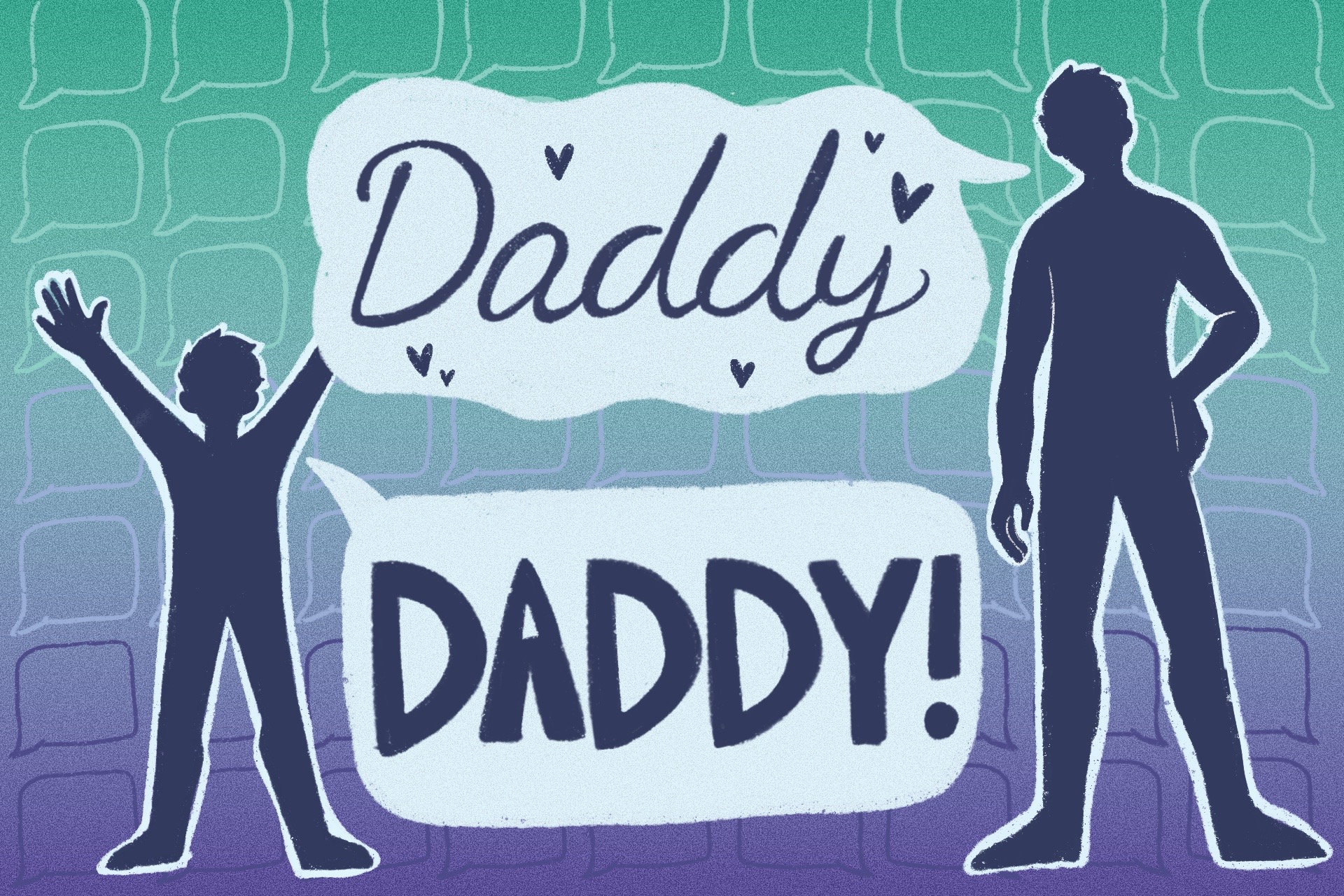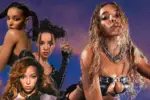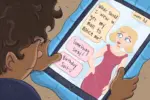Slang words like “Mommy” and “Daddy” have evolved over the decades to reflect new developments in our culture and society.
Slang has always been a dynamic aspect of language; it has evolved to reflect societal changes, cultural shifts and the influence of various subcultures. The traditionally parental, authoritative terms like “Daddy” and “Mommy” have taken on new meanings not only in the confines of intimate relationships, but also as descriptive words used in everyday life.
Unraveling the origins and evolution of these slang terms sheds light on how they have adapted and permeated contemporary dialogue. Among younger generations, these terms have moved beyond their conventional definitions and are often used to convey affection, admiration or even a sense of dominance in romantic and platonic relationships. They have also become verbs or adjectives, alluding to how someone carries themself or interacts with others. Examining their journey through social media, music and youth subcultures showcases the intricate layers shaping language and communication.
Historically, the terms “Daddy” and “Mommy” have been associated with parental figures, symbolizing authority, care and guidance. The re-appropriation of these words goes beyond familial contexts. Dr. Sarah Thompson, a linguistics professor at Harvard University, explains, “These terms are no longer confined to the parent-child relationship. They have become a part of a shared language among peers, redefining the way individuals express affection and navigate consent in various relationships.”
“Daddy,” in particular, has taken on a nuanced role, often used by people to playfully acknowledge someone attractive, someone they look up to, or as a way to express their desires and preferences.
The LGBTQ+ community, in particular, has played a significant role in reclaiming and repurposing these terms. “Daddy” and “Mommy” have been embraced as expressions of affection and attraction within the community, providing individuals with a language to explore and articulate their carnality outside the confines of heteronormative expressions. This is especially true among the Lesbian community when they discuss older women. Certain celebrities such as Sarah Paulson and Cate Blanchett have been assigned the distinction of being “Mother” or possessing “Daddy Energy” respectively.
@queerty When they misspell your name 😅 #sarahpaulson #lateshow #mother
Dr. Thompson also notes that the reclaimed usage of “Daddy” and “Mommy” challenges traditional gender roles and power structures. In an interview with Language Today magazine, she states that the redefined usage of “Daddy” and “Mommy” reflects changing dynamics in power and intimacy. Individuals are finding new ways to communicate and navigate the complexities of modern relationships. Psychologist Dr. Emma Rodriguez argues that the role of these terms in romantic contexts signifies a shift toward equality and sexual fulfillment among partners.
In an interview with Psychology Today, Dr. Rodriguez adds onto her statement by saying, “The use of ‘Daddy’ or ‘Mommy’ in a romantic context can indicate a need for a nurturing and protective dynamic within the relationship. It challenges the traditional notion of dominance and submission, emphasizing mutual care and support.” This linguistic evolution aligns with broader societal movements advocating for fluidity in gender roles.
@icryalotfornoreason no. i- i actually can’t. nop. haha. bye. @reneé #rmj #reneerapp #reneérapp #reneérappfunny #snl #snlpromo #jacobelordi #jacobelordiedit #jacobelordisnl #reneerappsnl
The impact of this linguistic modification is not only limited to romantic relationships but also extends to platonic connections. Friends may refer to each other as “Daddy” or “Mommy” flirtatiously and endearingly, further blurring the lines between traditional roles and fostering a sense of camaraderie.
This shift is not limited to spoken language. One of the primary catalysts behind the evolution of slang terms is the influence of social media platforms. Instagram, TikTok and X have contributed to their normalization. Memes, hashtags and user-generated content further provide a global stage for the dissemination of language trends, allowing slang to gain popularity and acceptance.
In The Know notes that TikTok has become the most frequently used social media app among younger generations and is “the primary medium for digital language and culture.” The constant exposure to diverse linguistic expressions on these platforms contributes to the rapid repurposing of familiar words. Online communities, celebrities and influencers mold the language used by younger generations by communicating with their audience, contributing to the mainstreaming of vocabulary that may have originated in niche subcultures. When fans emulate their favorite influencers, they incorporate these words into their own lexicon.
The collaborative nature of social media platforms allows for the creation of viral trends and challenges centered around specific aspects of slang. The use of hashtags and challenges encourages users to participate. This collaborative aspect not only fosters a sense of community but also accelerates the evolution of slang in real time.
Another influential channel for this phenomenon is the realm of music. The origins of the term “vibes” can be traced back to music culture, where it was initially used to describe the mood or feeling of a particular piece of music. Artists and musicians have long been at the forefront of linguistic innovation, introducing new words and expressions into their songs, and by extension, popular culture. The transformation of “Daddy” and “Mommy” into a “vibe” is no exception.
The Journal of Popular Music Studies highlights the impact of hip-hop on language trends, noting that the genre has played a significant role in introducing slang into mainstream vocabulary.
The song “Need to Know” from Doja Cat’s chart-topping album Planet Her features lyrics associating the word “Daddy” with a sexual context. When referring to her partner’s skills in the bedroom and his endowment she raps:
“Baby, come throw the pipe (pipe)
Gotta know what it’s like (like)
Yeah-yeah, oh-whoa-whoa
Baby, I need to know, mmm
What’s your size? (Size)
Add, subtract, divide (‘vide)
Daddy don’t throw no curves (curves)
Hold up, I’m goin’ wide (wide)”
Numerous examples in music echo this theme such as Beyoncé’s “Drunk in Love:”
“Baby, I want you, na-na
Can’t keep your eyes off my fatty
Daddy, I want you, na-na
Drunk in love, I want you (Ah)”
and KING MALA’s “she calls me daddy:
“It might be a little superficial
She plays with the boys
But she comes home to me
Little fucked up but I think it’s official
Cause she might be your girl
But she’s calling me daddy”
Beyond sexual contexts, the concept of “vibes” has become a ubiquitous fixture in contemporary discourse. Over time, its usage expanded beyond the area of music to encompass various aspects of daily life. Now, “Daddy vibes” or “Mommy vibes” serve as a shorthand for the overall energy or aura of a situation, person, interaction or environment. This also applies to the connotations of “vibes” in general and the word’s versatility, from describing positive energy at a party to expressing the chemistry between individuals in a relationship.
The term has its roots in African American Vernacular English (AAVE) and has gained widespread popularity through social media, particularly on platforms like TikTok and X. Users regularly share their experiences under the hashtags #goodvibes, #badvibes, #daddyvibes and #mommyvibes. Memes, gifs and emojis further contribute to the visual representation of different vibes, creating a shared language that extends beyond words.
The Journal of Sociolinguistics also emphasizes the role of social media in the dissemination of linguistic trends, stating that platforms like TikTok provide a space for users to create and popularize new forms of language.
The updated definitions of “Daddy” and “Mommy” provide a fascinating glimpse into the ever-changing landscape of language. While navigating the linguistic terrain shaped by online communities, influencers and cultural icons, it is essential to recognize the effect of these factors on our communication.
The exploration of phrases like “Daddy Energy” or “Mommy Vibes” frames language as a force that not only reflects but also shapes societal attitudes. The re-appropriation of traditional terms and the rise of new expressions highlight the resilience and adaptability of language in the face of cultural change, providing a fascinating glimpse into the intricate interplay between words and society.

















